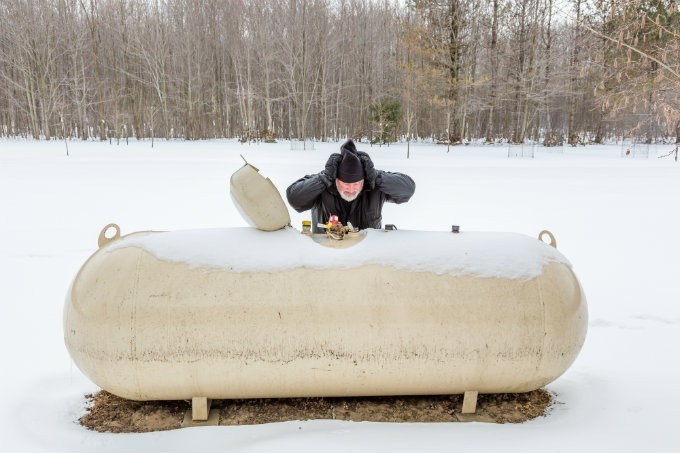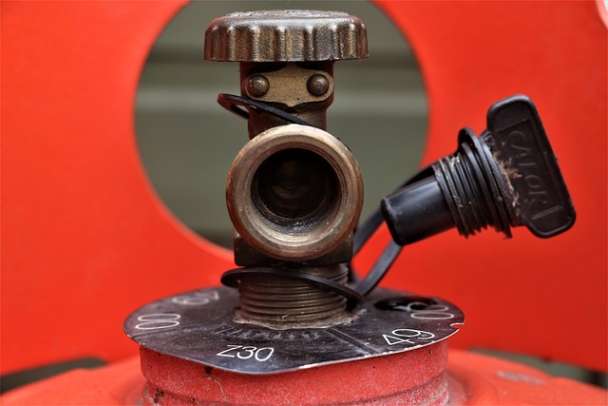Things You Should Know About Propane for Prepping and Survival

In the realm of prepping and survivalism, ensuring access to essential resources during emergencies is paramount. Among these resources, propane stands out as a versatile and reliable energy source with a myriad of applications. From everyday use to critical situations like blackouts or power outages, understanding the nuances of propane usage can significantly enhance one’s preparedness.
Here’s everything you need to know about using propane for prepping and survival.
What is Propane?
Propane, often referred to as liquefied petroleum gas (LPG), is a hydrocarbon gas commonly used as a fuel for various applications. It is odorless, colorless, and non-toxic in its natural state. However, for safety reasons, a distinctive odor is added to facilitate leak detection. Propane is stored in pressurized tanks as a liquid and vaporizes when released into the air.
Everyday Uses of Propane:
- Heating: Propane is widely used for heating homes, water, and even outdoor spaces. It’s a popular choice for heating in areas where natural gas isn’t available.
- Cooking: Propane-fueled stoves and grills are commonplace in households and outdoor kitchens. The precise temperature control and convenience make it a preferred cooking fuel.

Propane for Prepping:
- Long Shelf Life: Unlike gasoline, propane has an indefinite shelf life when stored properly. This makes it an excellent choice for preppers who prioritize long-term preparedness.
- Ease of Storage: Propane tanks are relatively compact and can be stored safely for extended periods, making them suitable for stockpiling.
- Energy Efficiency: Propane appliances are known for their energy efficiency, which can be crucial during emergencies when resources may be limited.
- Versatility: Propane can power a wide range of appliances, providing heating, cooking, and lighting solutions in diverse scenarios.
Propane During Emergencies:
- Blackouts/Power Outages: In the event of a blackout, propane-powered generators can sustain essential appliances, ensuring comfort and safety until normal power supply is restored. The duration of propane supply during such emergencies depends on the generator’s fuel consumption rate and the available propane reserves.
- Natural Disasters: Propane becomes invaluable during natural disasters such as hurricanes, where prolonged power outages are common. Its stability and reliability make it a preferred choice for cooking, heating, and powering essential equipment.
- Fuel Availability: Unlike gasoline, which may become scarce during emergencies due to panic buying or supply chain disruptions, propane is typically readily available, minimizing the risk of fuel shortages.
Estimating Propane Usage:
- Calculating Consumption: The rate of propane consumption varies depending on the appliance and its usage. Manufacturers typically provide specifications regarding fuel consumption for different appliances.
- Emergency Planning: When preparing for emergencies, it’s essential to estimate propane usage based on the appliances you plan to power and the duration of the emergency. Having surplus propane ensures you’re adequately equipped to handle unforeseen circumstances.

Safety Considerations:
- Ventilation: When using propane indoors, ensure adequate ventilation to prevent the buildup of carbon monoxide, a byproduct of combustion.
- Leak Detection: Familiarize yourself with the distinct odor of propane to detect leaks promptly. Install carbon monoxide detectors and propane gas detectors for added safety.
- Regular Maintenance: Maintain propane appliances and storage tanks regularly to ensure safe operation and prevent leaks or malfunctions.
Conclusion:
Propane emerges as a versatile and reliable resource for prepping and survival purposes. From everyday use to emergency scenarios, its stability, long shelf life, and diverse applications make it an indispensable asset for those prioritizing preparedness.
By understanding its nuances, estimating usage, and adhering to safety protocols, individuals can harness the full potential of propane to navigate through emergencies with confidence and resilience.